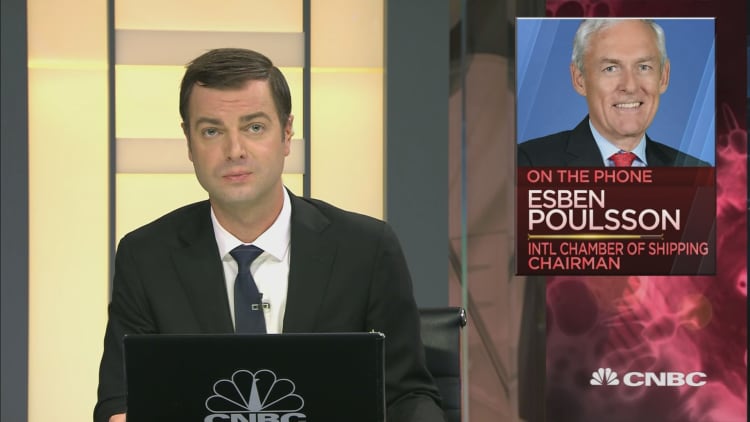There could be "terrible accidents" at sea if shipping crew changes continue to be blocked by coronavirus restrictions, the International Chamber of Shipping (ICS) told CNBC this week.
Of 1.2 million crew members at sea at any one time, around 100,000 usually leave their ships every month to comply with international maritime regulations protecting their health, safety and welfare, according to a joint statement by ICS and the International Air Transport Association.
However, these crew changes have been hindered amid the coronavirus pandemic that has killed nearly 145,000 people and sickened more than 2.15 million worldwide.
"The issue of seafarers and their well-being is crucial, and if this problem is allowed go on for too long, you will find stress levels and health issues, and eventually there will be some terrible accidents," said Esben Poulsson, chairman of the ICS.
Due to government-imposed travel restrictions, flights for seafarers to head home or to travel to ports are now unavailable, while immigration and health screening protocols are also impeding the "vitally necessary crew changes," the statement said.
We need governments to act and we need them to act now.Esben PoulssonChairman of the International Chamber of Shipping
It explained that some staff who cross international borders for duty are being affected by "national restrictions designed for passengers and non-essential personnel," and that could "unnecessarily jeopardize the ability of airlines and shipping companies to keep global supply chains operating."
The two trade associations are calling on governments to facilitate ship crew changes, with the IATA offering the help of airlines to fly maritime workers to and from designated airports so that they can return home or take over from other crew members.
"Without wishing to sound overly dramatic, we think that this is potentially a bit of a time bomb," he told CNBC's "Capital Connection" on Friday.
"We've worked with IATA ... on various ways of tackling this problem but we need governments to act and we need them to act now," he added.
Poulsson said Japan, Hong Kong and Singapore have allowed crew changes on a "case-by-base basis" and in "certain circumstances."
"We just need to, not only expand that, but we need other jurisdictions to go the same way."



